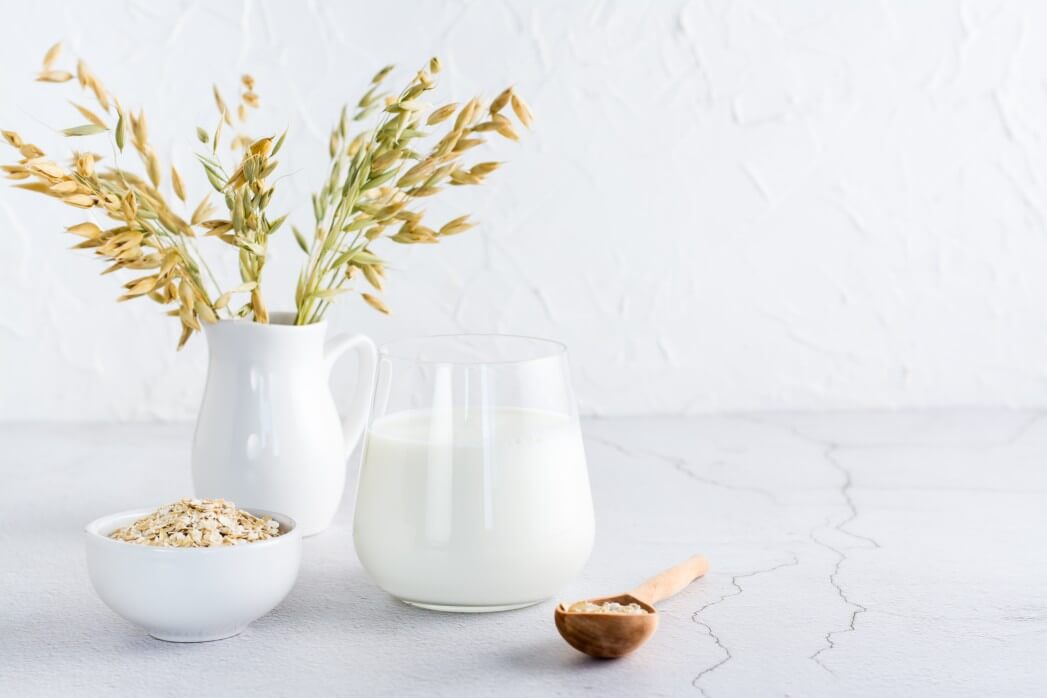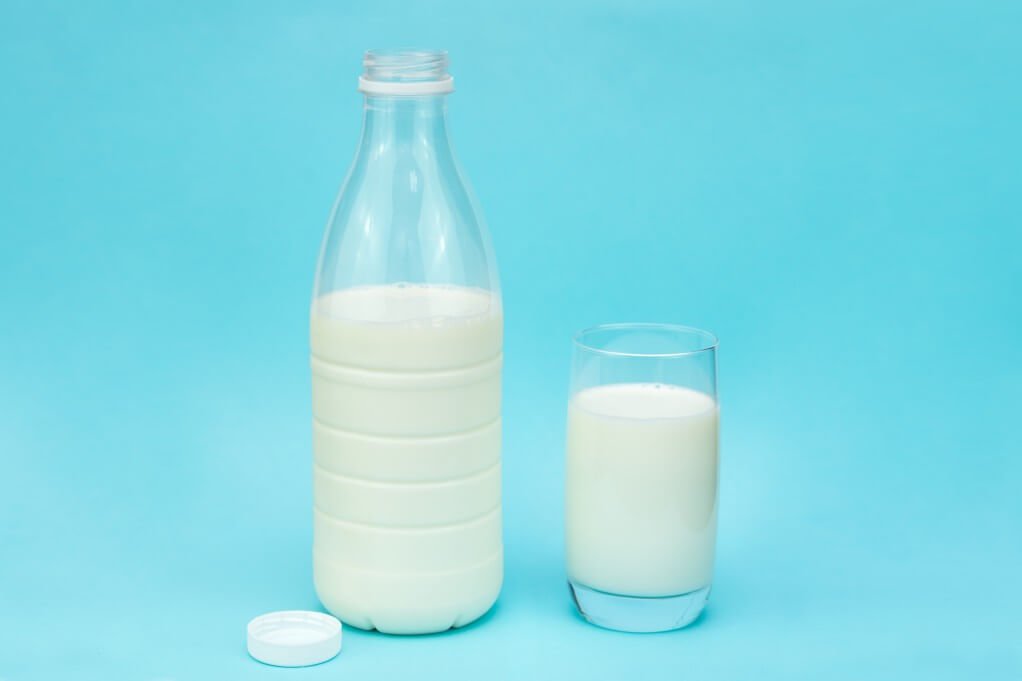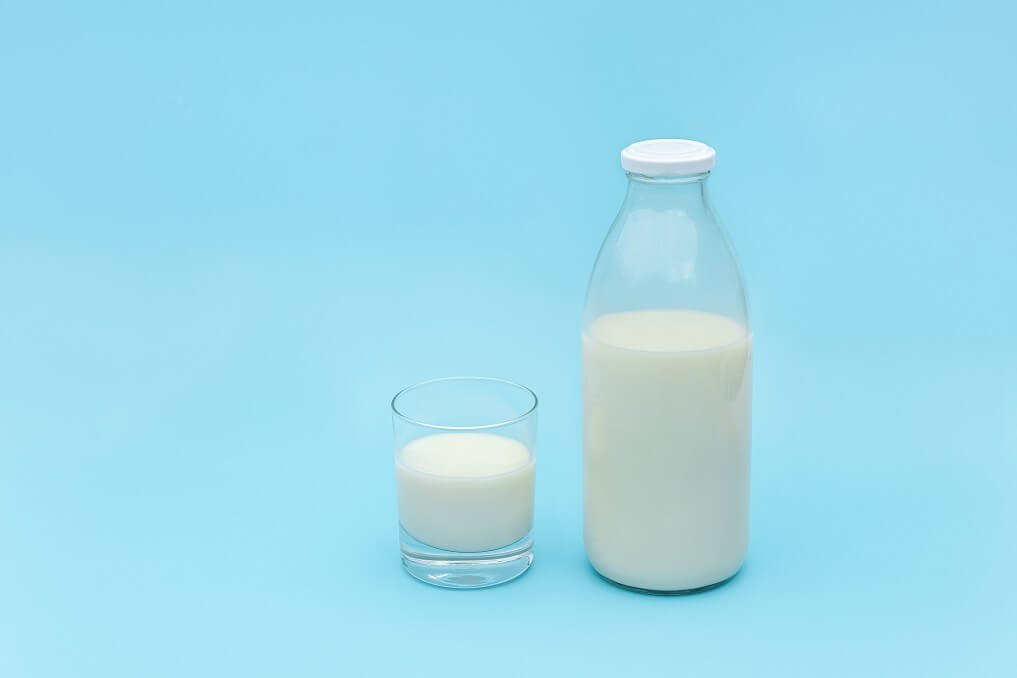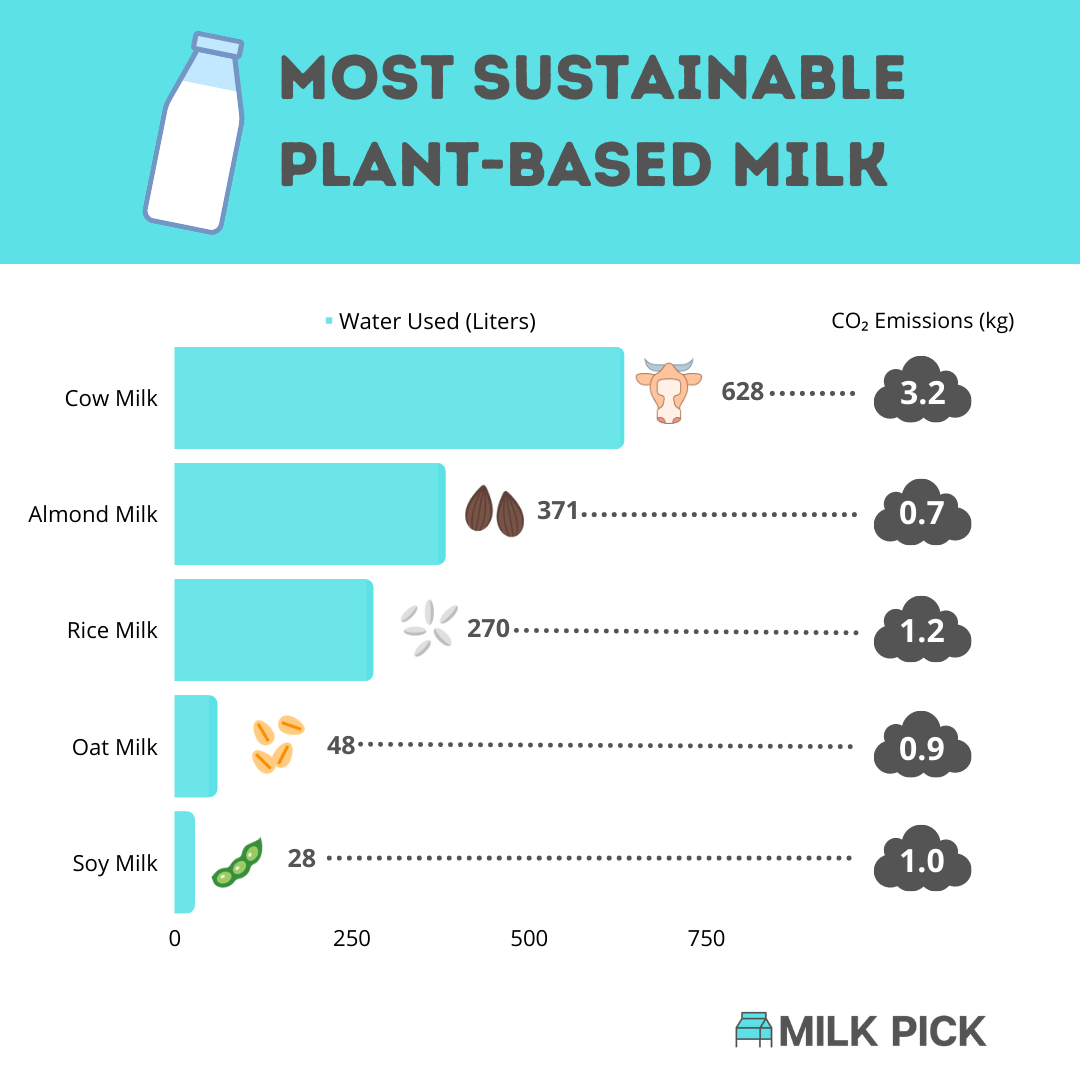As a vegan, food research can sometimes be a huge chore. When it comes to popular items like milk substitutes, the varying amount of choices can make your head spin! From lactose-free to dairy-free, which milk is right for vegans? Is lactose-free milk vegan?
Unfortunately, lactose-free milk is not vegan. While it has had the lactose removed, lactose-free milk still contains milk - an animal product - and is therefore not a vegan option. Vegan milk alternatives are usually plant-based and completely dairy-free.
Let’s take a deeper look into what lactose free milk is and why it isn’t vegan-friendly. Plus we’ll give you some alternatives to lactose free milk that vegans can enjoy!
What is Lactose?
Lactose is a sugar that is naturally present in dairy products, including milk, ice cream, and most yogurts and cheeses.
It is a combination of two smaller sugars: glucose and galactose.
Your body digests lactose using an enzyme called lactase.
Some people have a lactase deficiency, which means that lactose cannot be properly broken down and digested in their bodies.
This leads to symptoms of lactose intolerance.
Related: Do Vegans Drink Milk?
What is Lactose Intolerance?
Lactose intolerance occurs when an individual does not produce enough of the enzyme needed to break down lactose: lactase.
When lactose can’t be broken down, it sits in the stomach, causing digestive upset with symptoms like bloating, excessive gas, and diarrhea.
Approximately 30-50 million Americans suffer from lactose intolerance!
People with lactose intolerance can take supplements in order to properly digest lactose, but most opt not to consume products containing lactose as a precaution.
Luckily, some dairy products naturally contain small amounts of lactose, like greek yogurt or parmesan cheese, and these can still be enjoyed by those who suffer from lactose intolerance.

What is Lactose-Free Milk?
Lactose-free milk is regular cow’s milk that has undergone processing so it no longer contains lactose.
This makes the milk digestible for people with lactose intolerance!
Because of its easy digestibility, lactose-free milk is also a great option as you get older - as we age, we don’t produce as much lactase, so you may find yourself having more difficulty digesting dairy products later in life.
Those with other gut sensitivities may also benefit from lactose-free milk, as certain sugars can be difficult to digest and cause upset with conditions like IBS or Celiac Disease.
However, lactose-free milk still contains dairy.
Related: Is Muscle Milk Vegan?
How Is Lactose-Free Milk Made?
Different milk companies have different processes to achieve this.
Some will filter out the lactose entirely, while others will break down the lactose into its component sugars of glucose and galactose, which are easily digestible sugars using the lactase enzyme.
In the cases where lactose is broken down into two simple sugars, the resulting lactose-free milk will often taste sweeter than regular milk!
Lactose is naturally tasteless, but when separated into glucose and galactose, the glucose molecules in lactose-free milk interact with your tastebuds, producing a sweeter flavor.
Does Lactose-Free Milk Have More or Less Nutrition Than Regular Milk?
All that lactose-free milk is missing is lactose.
In other words, it has a comparable nutritional value to regular dairy milk!
Milk is an excellent source of nutrients, providing us with calcium, Vitamin A, Vitamin B12, and Vitamin D. Since our bodies can’t naturally produce Vitamin D, milk is a great way to consume it!
As stated above, many milk alternatives are also supplemented with vitamins and minerals, including Vitamin D, so you don’t have to miss out on the great nutritional value of milk because you’re vegan!
What Is the Difference Between Lactose-Free and Dairy-Free?
Lactose-free milk does not contain lactose, but it still contains dairy. Because of this, lactose-free milk isn’t vegan.
Dairy-free milk doesn’t contain dairy at all and is made from plants, such as soy, almonds, oats, and coconut, as I mentioned above.
Other dairy-free products are also on the market, like dairy-free yogurt!

What Is the Difference Between Dairy-Free and Non-Dairy?
Dairy-free shouldn’t be confused with non-dairy, which are two separate terms.
Non-dairy is regulated by the FDA, while the term “dairy-free” is not.
While dairy-free generally denotes that no dairy products have been used or are present, the regulated term “non-dairy” technically still allows for the presence of milk protein.
Whenever you’re making choices, be sure to do your research so you can find an option that’s right for you!
As a vegan or someone with a milk allergy, non-dairy would not always be a safe choice. Always check the ingredients to be 100% sure!
Related: Can Vegans Drink Skim Milk?
Is Dairy-Free Milk Vegan?
Dairy-free milk is typically vegan!
Since dairy-free milk products are plant-based, these are excellent alternatives for vegans.
Whatever you choose to consume, be sure to be environmentally aware and always research what you’re eating.
Some products have special certification, labeling them as “certified vegan”.
This label indicates they do not contain animal products or byproducts, and that the product has not undergone animal testing.

What Are Vegan Milk Alternatives to Lactose-Free Milk?
Though lactose-free milk isn’t vegan, there are a variety of commonly available alternatives to dairy milk on the market today.
The good news is that most of them are vegan-friendly! So what are your options, and which one is right for you?
Soy Milk
Soy milk is a naturally nutritious, low-fat, and cholesterol-free milk alternative!
Soy milk does not naturally contain calcium like dairy milk does, but many commercial soy milk products are supplemented with additional vitamins and minerals to meet these needs.
Soy milk is also an excellent baking substitute!
If you use soy milk as a replacement for dairy milk in your baking, you’ll end up with a similarly completed recipe.
As a vegan, you have the environment on your mind.
As the soy industry grows, it can have negative impacts on the environment.
Additionally, soy crops are increasingly genetically modified and treated with various chemicals, like pesticides.
For these reasons, you may want to look for another alternative.
Almond Milk
With less than 50% of the calories as dairy milk, you can substitute almond milk to add texture and a smooth flavor to your smoothies or cereals while keeping your calorie count low. It’s also gluten-free!
Like soy milk, almond milk works well for baking.
There are even flavored and sweetened alternatives like vanilla or chocolate that can add that extra zing to desserts (although they're not necessarily healthy)!
Most of the nutritional value, including calcium, is lost from the almonds upon processing into almond milk.
However, most almond milk is fortified with added vitamins and minerals to give it a better nutrient value.
Almond farming also consumes large amounts of water, but it is still a better alternative to the environmental damage that dairy farming causes.
Oat Milk
Oat milk is my personal favorite milk alternative!
It has a subtle but creamy taste and is excellent for cooking.
Personally, I love adding oat milk to smoothies or coffee!
Oats contain a lot of beneficial nutrients (including some that can be used to fight off bad cholesterol) and unlike almond milk, those aren’t lost when producing oat milk!
Oats also naturally contain Vitamin D, though commercial oat milk is supplemented with additional vitamins and minerals.
You can also make oat milk at home!
Just blend oats with water and filter the contents through cheesecloth.
Even if you aren’t blending it at home, oat milk has a much lower environmental impact.
The oat industry also has a low carbon footprint and is fairly sustainable.

So, if you’re looking for a low-impact milk substitute, oat milk should be one of your top options!
Coconut Milk
Made from the flesh of the coconut, this lactose-free milk alternative is delicious, creamy, and popular for its sweet flavor and low carbohydrate count.
Coconut milk is widely used to add texture and flavor to dishes like curry, soup, vegan ice cream, and coffee.
Coconut milk can also be used to make vegan yogurt and cheese!
Coconut milk has a low environmental impact as compared to almond and soy milk.
Because coconuts are harvested from coconut trees, the additional planting of trees helps absorb carbon dioxide from the environment.
The trees also help enrich the surrounding soil!
Rice Milk
If you have nut allergies, it can be difficult to find a good vegan milk alternative amidst the abundance of almond and coconut milk.
Like oat milk, you can also make rice milk at home by boiling rice and adding a bit of sweetener.
Though rice milk has a flavor that is similar to dairy milk, it’s also significantly thinner.
Due to these consistency differences, rice milk doesn’t make a great substitute for cooking or baking.
It can also be a bit too sweet for any savory dishes.
Rice farming uses a significant amount of water, but because of the long history behind it, sustainable alternatives have been implemented for rice production, so the environmental impact of this practice is lessened.
